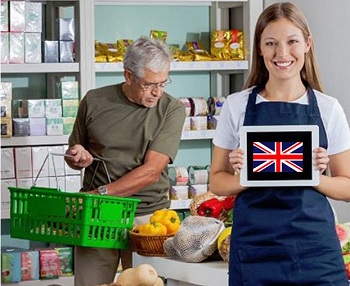Mobile shopping is on the rise throughout the United Kingdom
Cheil Worldwide has released the results of a recent survey concerning the growth of mobile commerce in the United Kingdom. Consumers in the UK have been growing increasingly mobile as they begin to rely more heavily on their smartphones and tablets. As such, they have begun using these devices to shop more frequently. Mobile commerce allows consumers to shop online from a mobile device wherever they are and this concept has become quite attractive to many people in the United Kingdom.
Mobile devices are becoming strong shopping tools for consumers
According to the survey, the mobile commerce market has grown by 63% over the past five years. The majority of this growth was seen over the past two years, driven heavily by the results that retailers had seen during the holiday seasons of 2012 and 2013. The survey shows that approximately 55% of shoppers claimed to have used a mobile device in store, with 54% of these shoppers using their devices to compare prices of products online. Many mobile shoppers also use their devices to research products being offered by multiple retailers.
Many people purchase their mobile devices with shopping in mind
The survey suggests that mobile devices have become one of the most favored shopping tools among consumers. The survey shows that 50% of consumers had shopping in mind when they purchased their mobile devices. These devices are not only being used to research products and compare prices, of course, as many consumers have used their smartphones and tablets to outright purchase the products they are interested in. In the United Kingdom, mobile payments are becoming much more common.
Mobile spending is on the rise
The amount of money people are spending through their mobile devices has more than doubled over the past five years. Consumers appear to favor mobile commerce because of its convenience. Shopping on a mobile device allows them to avoid lines at checkout and the chaos that is often associated with physical stores. During the holiday season, mobile shopping becomes much more common as consumers look to avoid crowds at large stores.